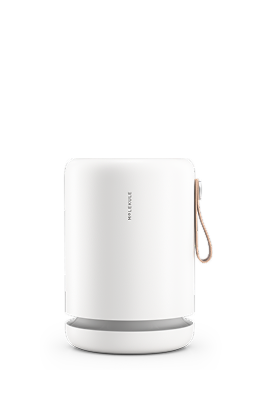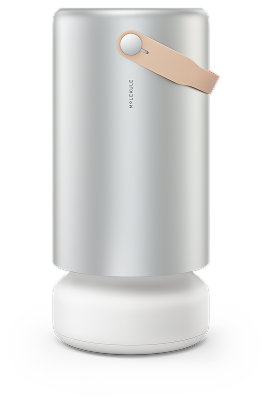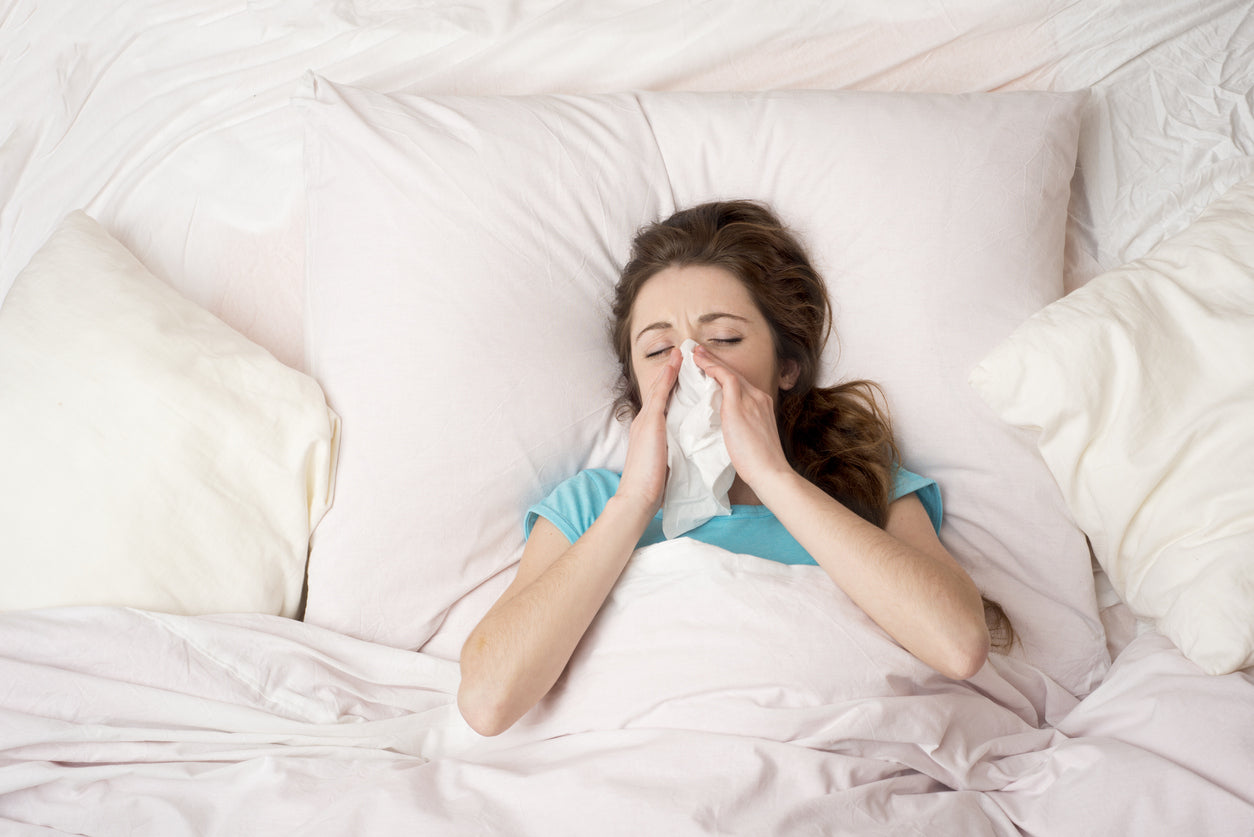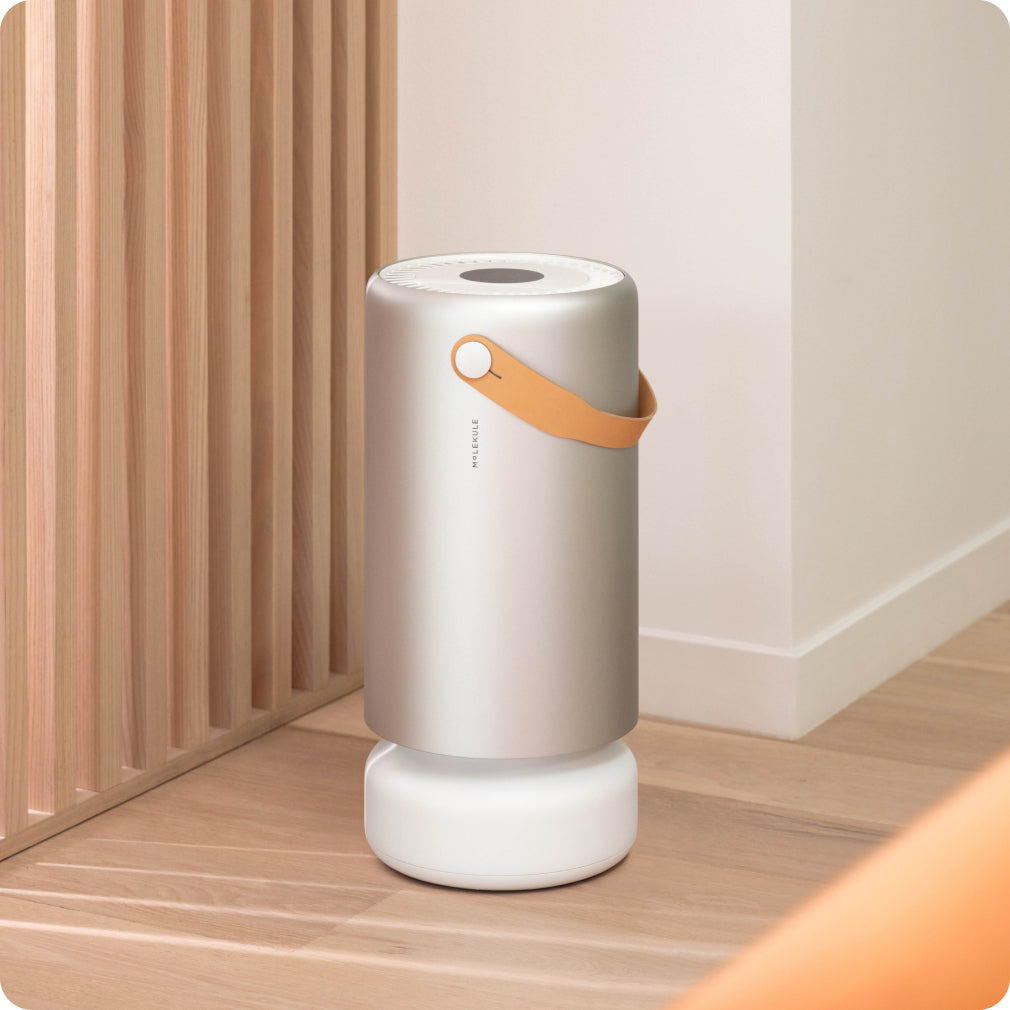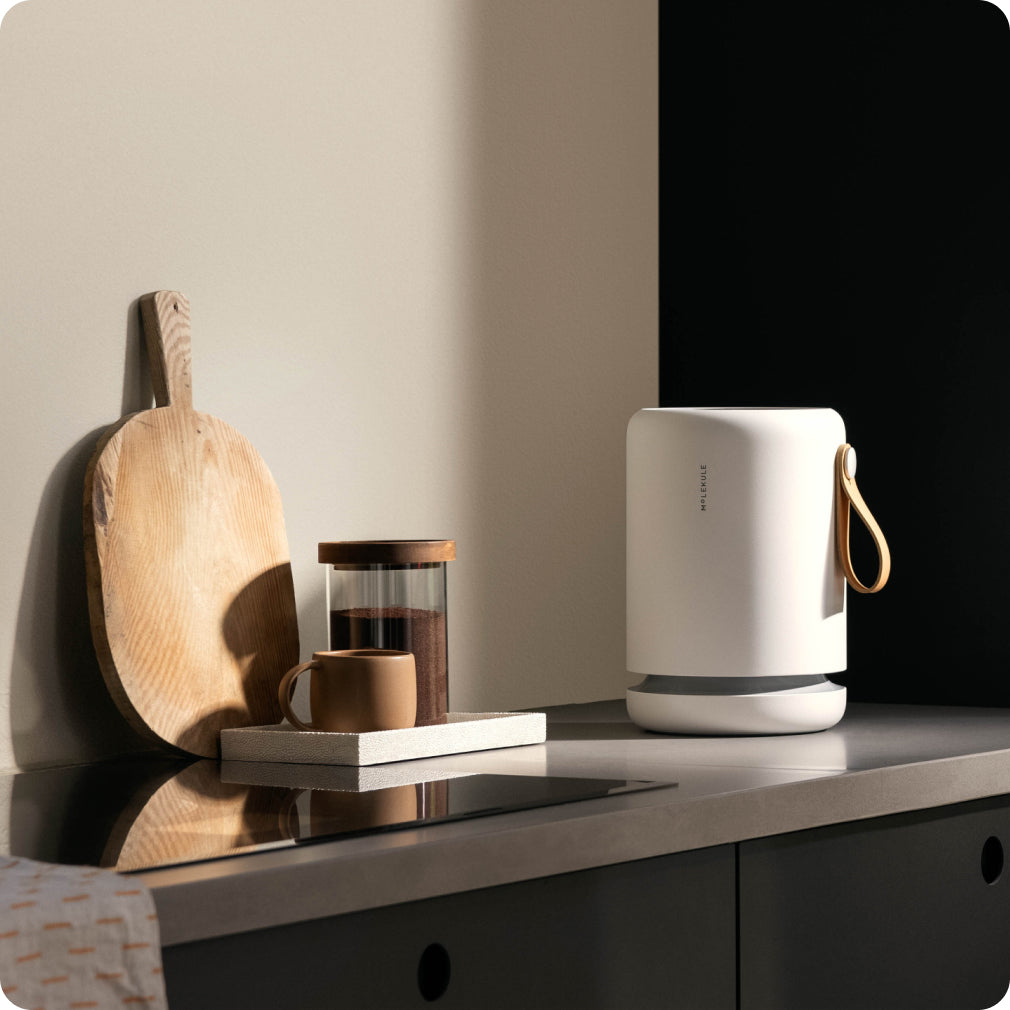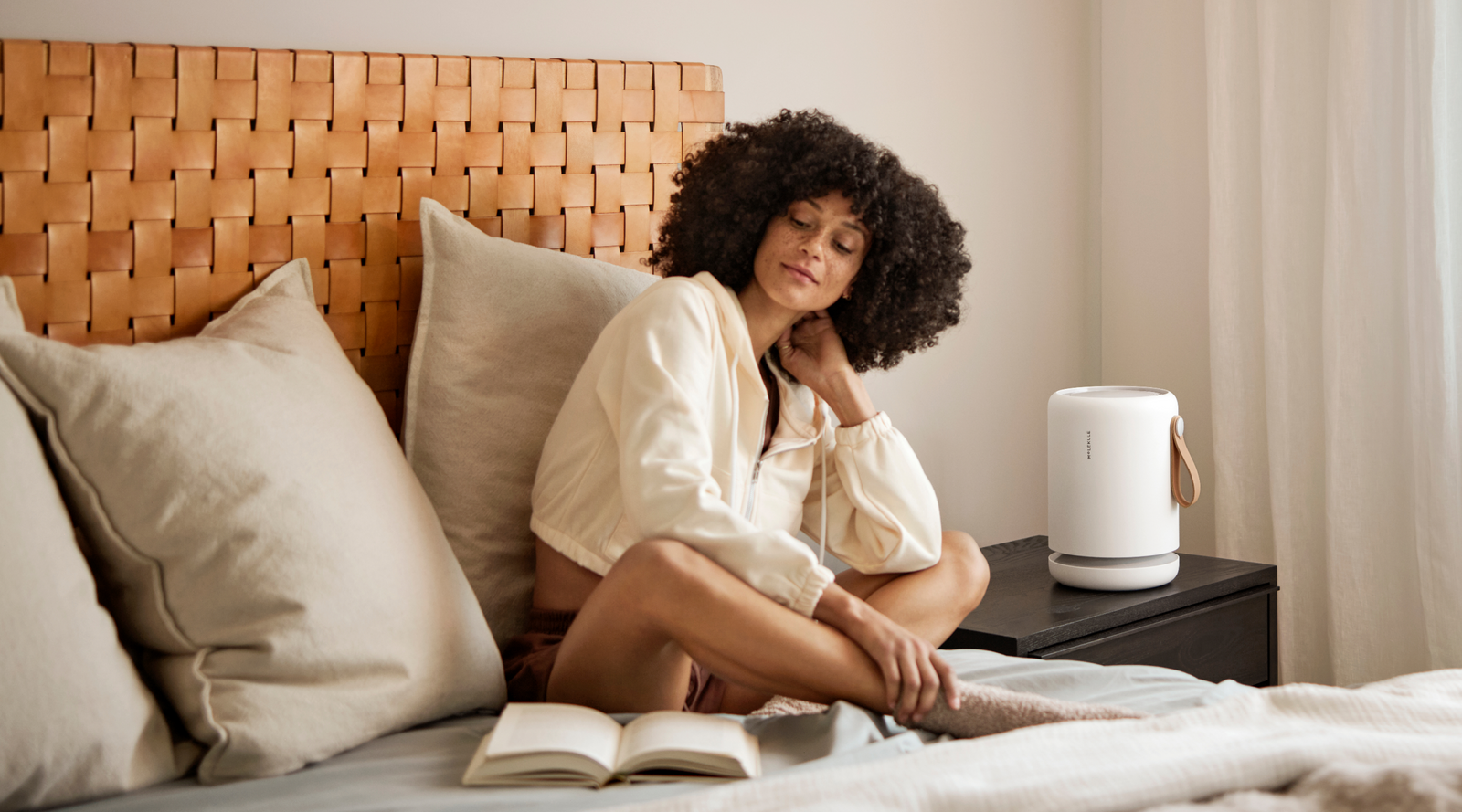If you feel that your allergy symptoms seem to get worse at night, you are not alone. Some people may experience bad allergy attacks at night, even if they do not have them during the day. Here are some possible reasons for this and what you can do and to help keep nighttime allergy problems from ruining your sleep.
What triggers your allergy symptoms
If you have respiratory allergies, you may experience a collection of symptoms that all start with your nose — perhaps you take a breath and a substance like pollen or dust lands on the lining of your nose. These substances, called allergens, may cause a release of chemicals that produce symptoms as your body attempts to protect you from what it perceives as a threat. This is an immune response. Allergens include pollen, dander, mold or dust mite droppings — all pollutants you may find in your home and bedroom.
Could there be allergens hiding in your bedroom at night?
The presence of allergens like pollen, pet dander or dust mites are common indoors. Pollen is probably the most well-known allergen and can cause seasonal allergies. Dust mite allergens are also common and are found in mattresses and bed linens. If you are allergic to these substances, then they may trigger your allergy symptoms at night. People who have a dust mite allergy experience these symptoms all year round as opposed to pollen. Symptoms may become worse at night and in the early morning as dust mites are often concentrated in your bedding.
How nighttime and daytime pollen levels can affect exposure
If you have seasonal allergies to pollen, the general recommendation from the NIH and other health organizations is to stay indoors during the morning hours of 5 to 10 and save outdoor activities for the late afternoons. High pollen counts are usually associated with the daylight hours when it is warm, and cool evening or nighttime hours are considered lower risk for allergies. However, a 2016 study found that there may be more risk of exposure to pollen at night than previously thought. Researchers looked at pollen concentrations during daytime and nighttime hours for five different allergy-inducing pollen types. The study did confirm that, on average, airborne pollen was more frequently recorded during the daytime. At the same time, it uncovered significantly higher concentrations in the air for certain varieties of allergy-inducing pollen. For example, ragweed pollen was found to be 60% higher during the night than during the day. The FDA, in material it provides about allergy relief, also states that during the ragweed season of late summer and early fall, pollen levels are the highest in the evening hours.
In the study, the researchers explained that certain types of pollen, due to their size, were more likely to find their way into the air during nighttime. Smaller pollen varieties, like ragweed, that is usually suspended higher in the atmosphere while the air is warm, comes down when the air is cooled. This may explain higher concentrations of pollen both during the nighttime and the cool hours of early morning.
While, this research is concentrated on outdoor pollen levels, it does not mean that pollen is only outdoors. Pollen is indoors as well. It may enter your home (and bedroom) on your clothing or hair, via pets or through an open window. Pollen hiding in your bedroom can collect in the form of dust and may trigger your allergy symptoms if you breathe it in at night. You can be exposed to indoor pollen from particles that have lingered on your pillow or bed sheets, on your hair or skin or from dust that disperses in the air.
Why allergy symptoms may feel worse at night
Some research has focused on how the chemicals released during the body’s immune response to allergens can impact allergy symptoms at night and disrupt sleep. Your sleep-wake cycle, that is the cycle which controls the cadence of sleep and wakefulness, is controlled by a large number of hormones which transition your body from an active to inactive state. Some of these hormones are also involved with regulating your allergic reactions. A reason why you may find that your allergies are worse, particularly at night, is that certain allergy-regulating hormones dip when your sleep-wake cycle is going towards sleep (Koinis-Mitchell et al., 2012).
Here are some common allergy symptoms you may experience, both shortly after exposure to an allergen and those that can develop later, according to the NIH and a review of the body of literature on sleep and allergies done by Koinis-Mitchell et al., (2012):
- Nasal congestion (stuffy nose): A stuffy nose may develop after some time when you come into contact with a substance you are allergic to. Nasal congestion at night could be related to changes in the body’s chemical response, like increased inflammation. The posture of lying down at night can increase mucus production, which can lead to more congestion at night as well.
- Runny nose: You may experience a runny nose soon after breathing in an allergen, which can commonly disturb your sleep at night and cause discomfort.
- Sneezing: You may sneeze shortly after coming into contact with an allergen, which can disturb your sleep.
- Coughing: You may later develop coughing as an allergy symptom after being exposed to an allergy trigger.
Which type of allergies can be worse at night?
Different allergies may be worse at night than others. Depending on the type of allergy you usually suffer from during the day, your experience with nighttime allergies can vary.
Hay fever: Hay fever is a type of seasonal allergy associated with exposure to pollen from grass, trees and weeds. People who have hay fever may find that they are suffering more at night, possibly because of exposure throughout the day or surprisingly, the evening hours. As mentioned earlier, researchers have found that certain types of pollen tend to fall from higher up in the atmosphere closer to ground level during the cool hours after the sun sets. There could also be pollen in the bedroom, either from grains that have fallen from your hair or skin and onto bedding, or from dust that has come into the room from outside.
Pet dander: Many people have pets who sneak into their beds at night to cozy up near their best friends for a few hours of the night. As a result, beds tend to have higher concentrations of pet dander. Even if you are not actively inviting your pet to sleep with you, pet dander in your bed sheets may be triggering worse pet dander allergic reactions at night.
Mold: Mold thrives in dark places, such as under and behind your bed. These are also places people tend to seldom check and clean. Worsening mold allergies at night might be as a result of a moldy sleeping environment.
Dust mite: Dust mites find their home in mattresses, pillows and bedding. Night time allergies can get worse people you may be sleeping in sheets and linens which are full of dust mites.
Tips for reducing night time allergies
You can do several things to help diminish your nighttime and early morning allergies, returning your sleep to a restful state.
There are several cleaning tactics that you can start integrating in your monthly, weekly, and daily routines. If you are allergic to pollen, wash your hair at the end of every day to remove pollen collecting during the day and prevent it from ending up on your pillow. You should also keep your windows closed if possible to keep pollen from coming indoors. Try to wash your bed sheets once a week to remove dust mites, pollen, and pet dander. Between cleaning, using a dust mite cover on your bed can help keep dust mites away from you. Do a deep cleaning of your entire bedroom on a monthly basis, cleaning carpets and wiping down hidden surfaces where mold may be lurking.
Air purifiers are often recommended as a way to remove allergens. Research has shown that multiple interventions, including using an air purifier placed right by the bed in the “sleep breathing zone” may help reduce their levels. Traditional air filters can trap pollutants on filters, though Molekule air purifiers go beyond simply trapping pollutants to destroying them at the molecular level.
When it comes to allergy medicine, you will find that many over-the-counter sleep aids contain antihistamines, given how histamines are a potential disruptor to your sleep wake cycle. Having said that, many experts also caution relying on allergy medicine as a sleep aid in a long term setting. As with taking any medicine, the first step of the decision-making process should start by having a conversation with your doctor on your allergies and its negative effect on your quality of sleep.
Sleep is an important part of feeling healthy and performing your best. Nighttime allergies can come in the way of restful sleep. By understanding how allergens work and following the tips above, you may find yourself more refreshed in the morning.
